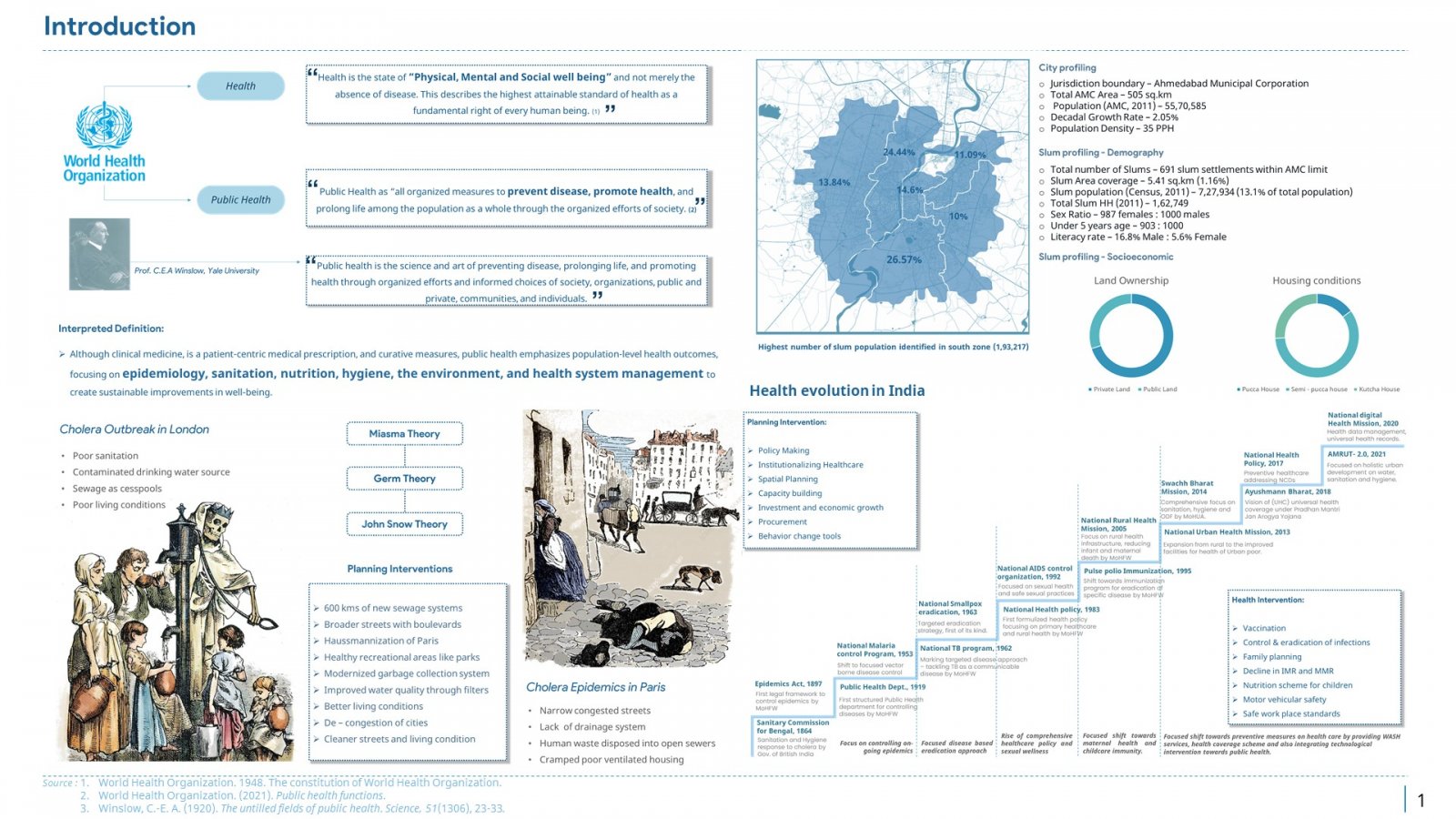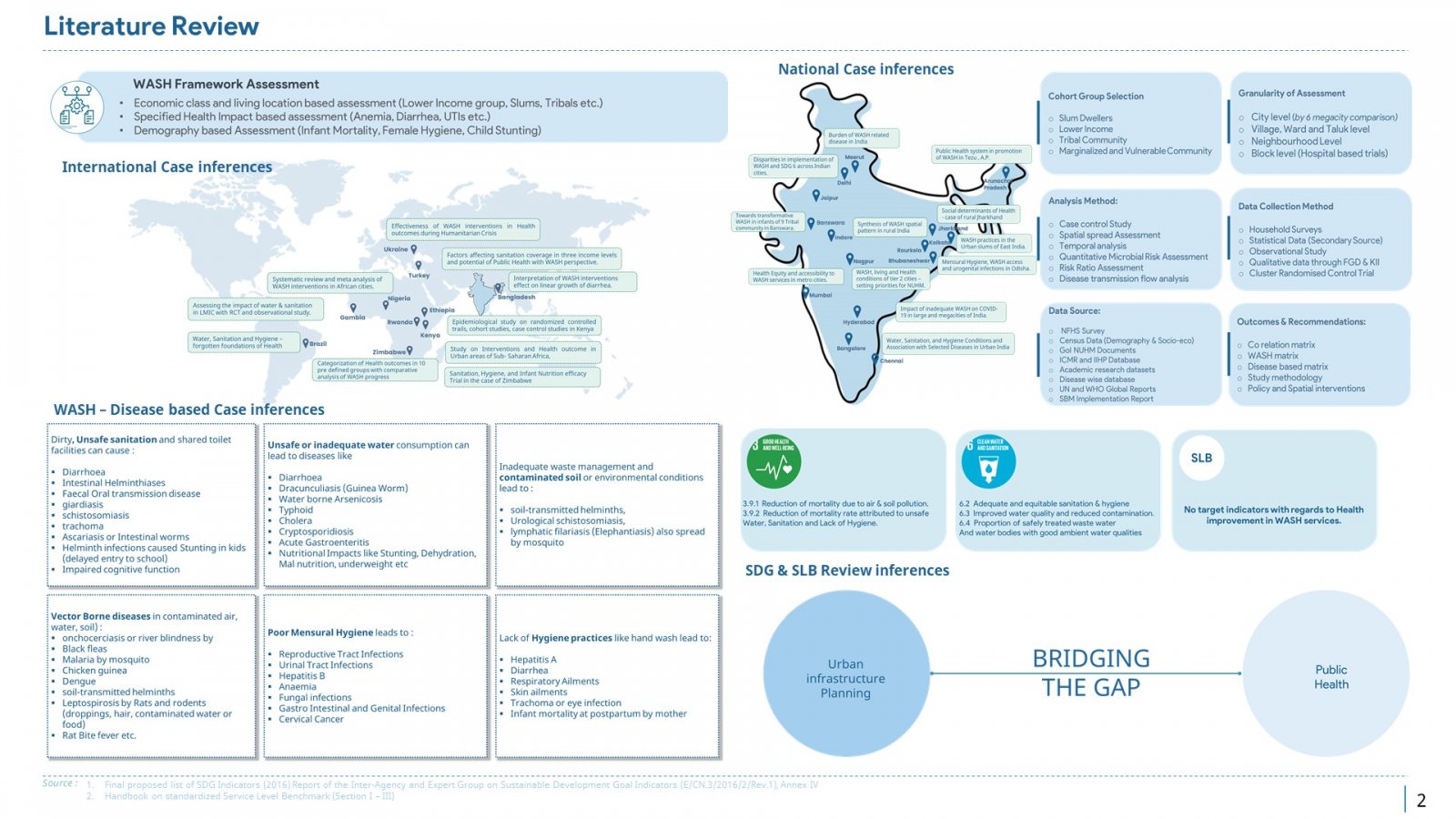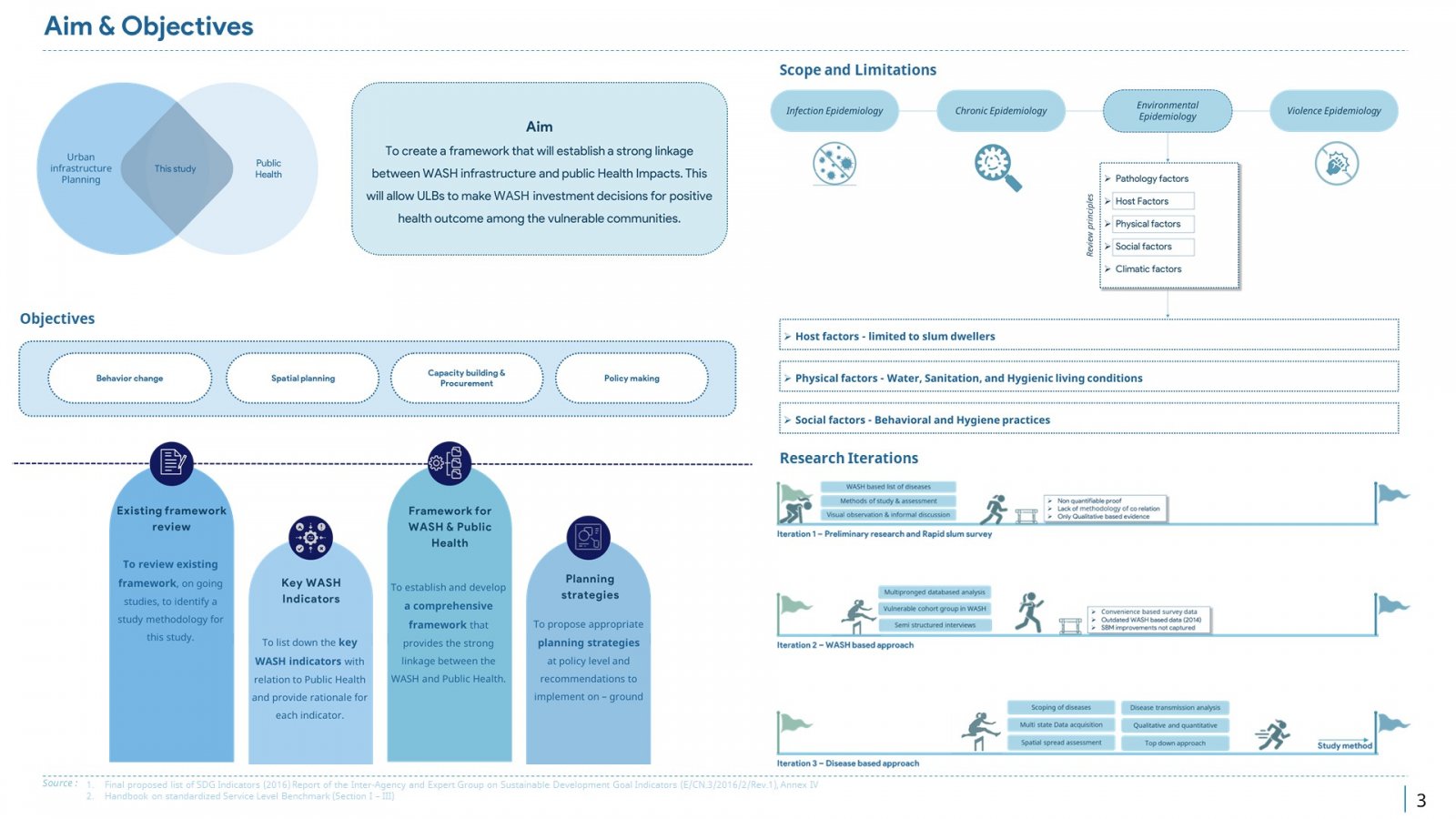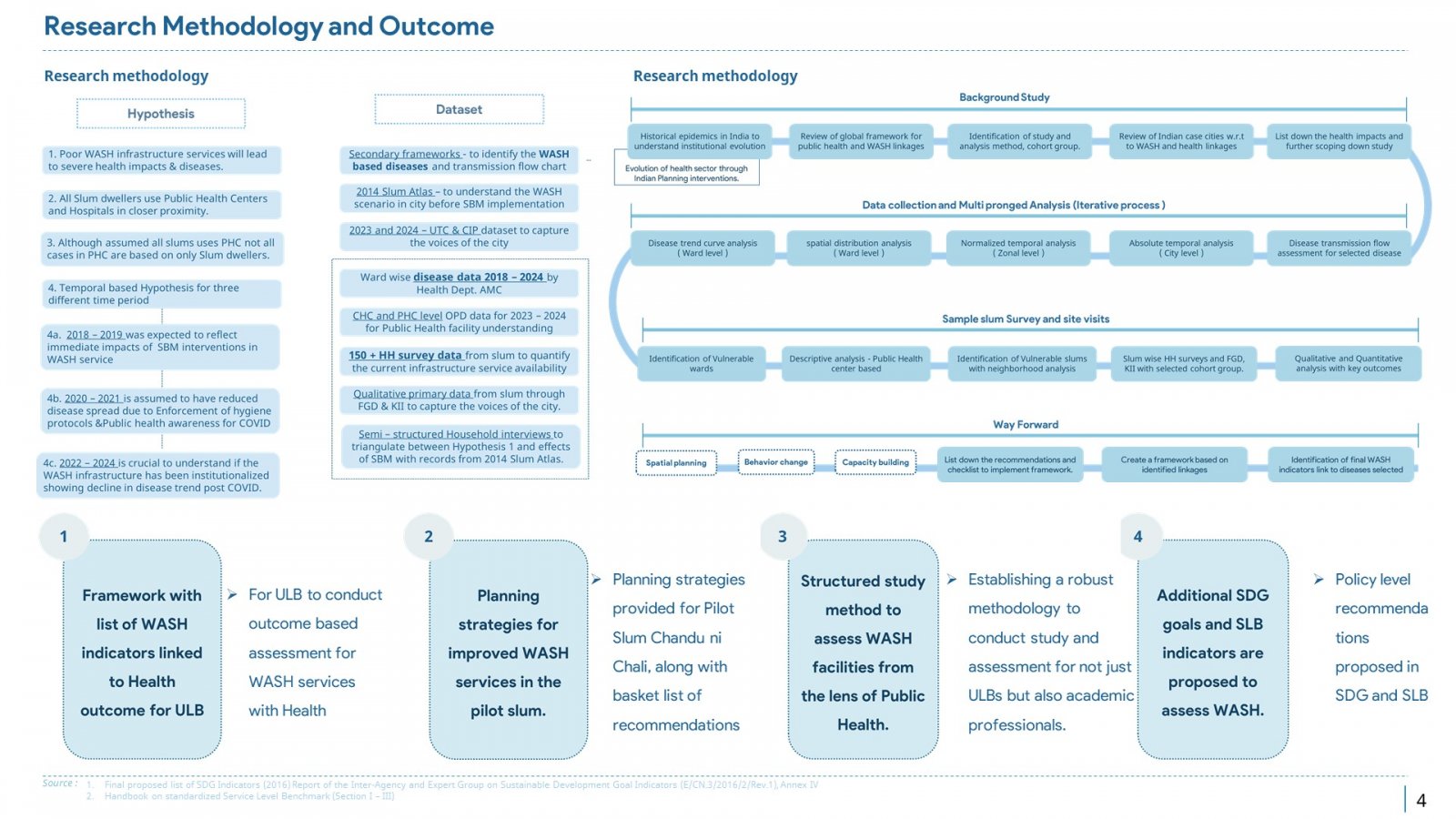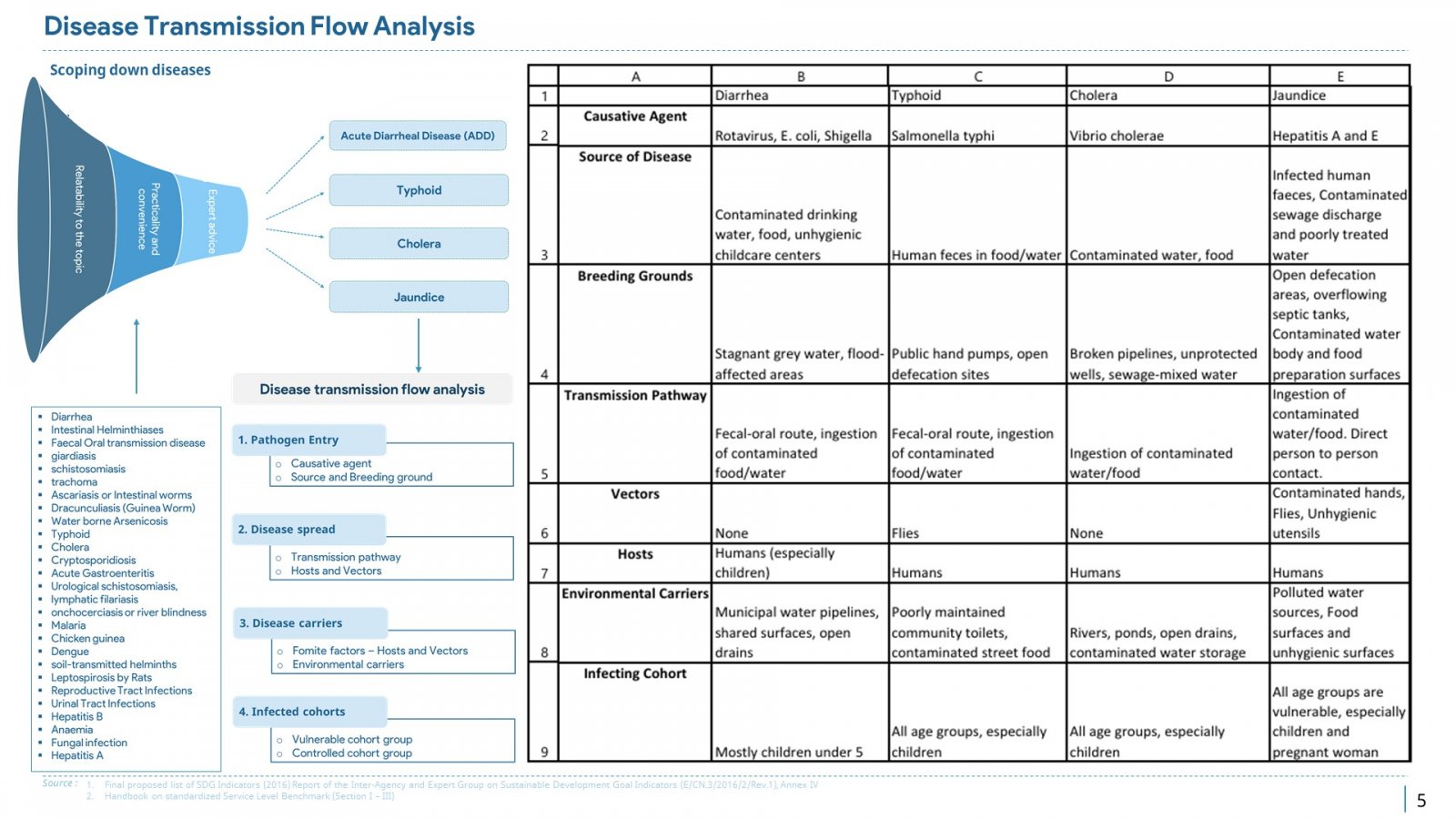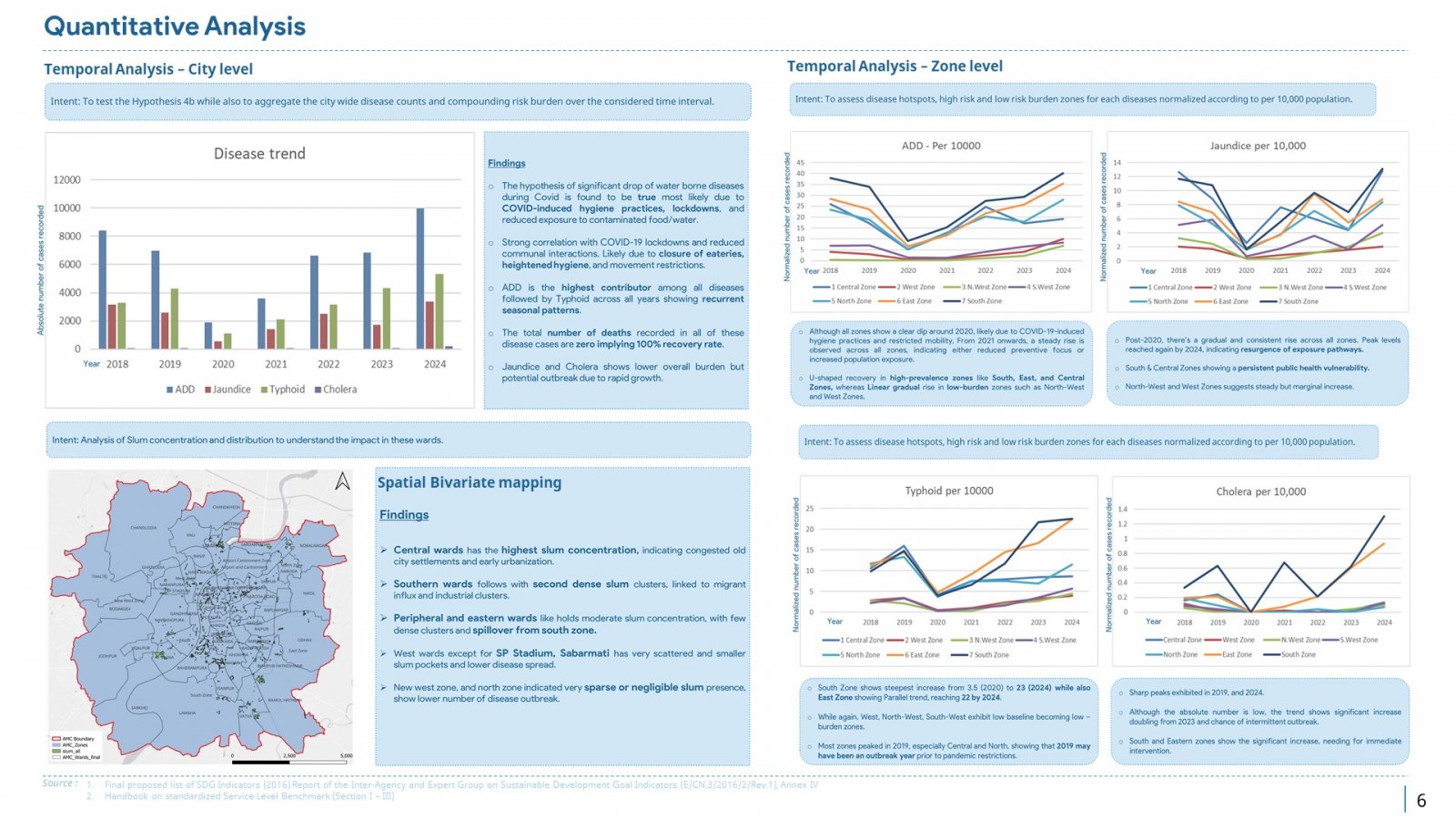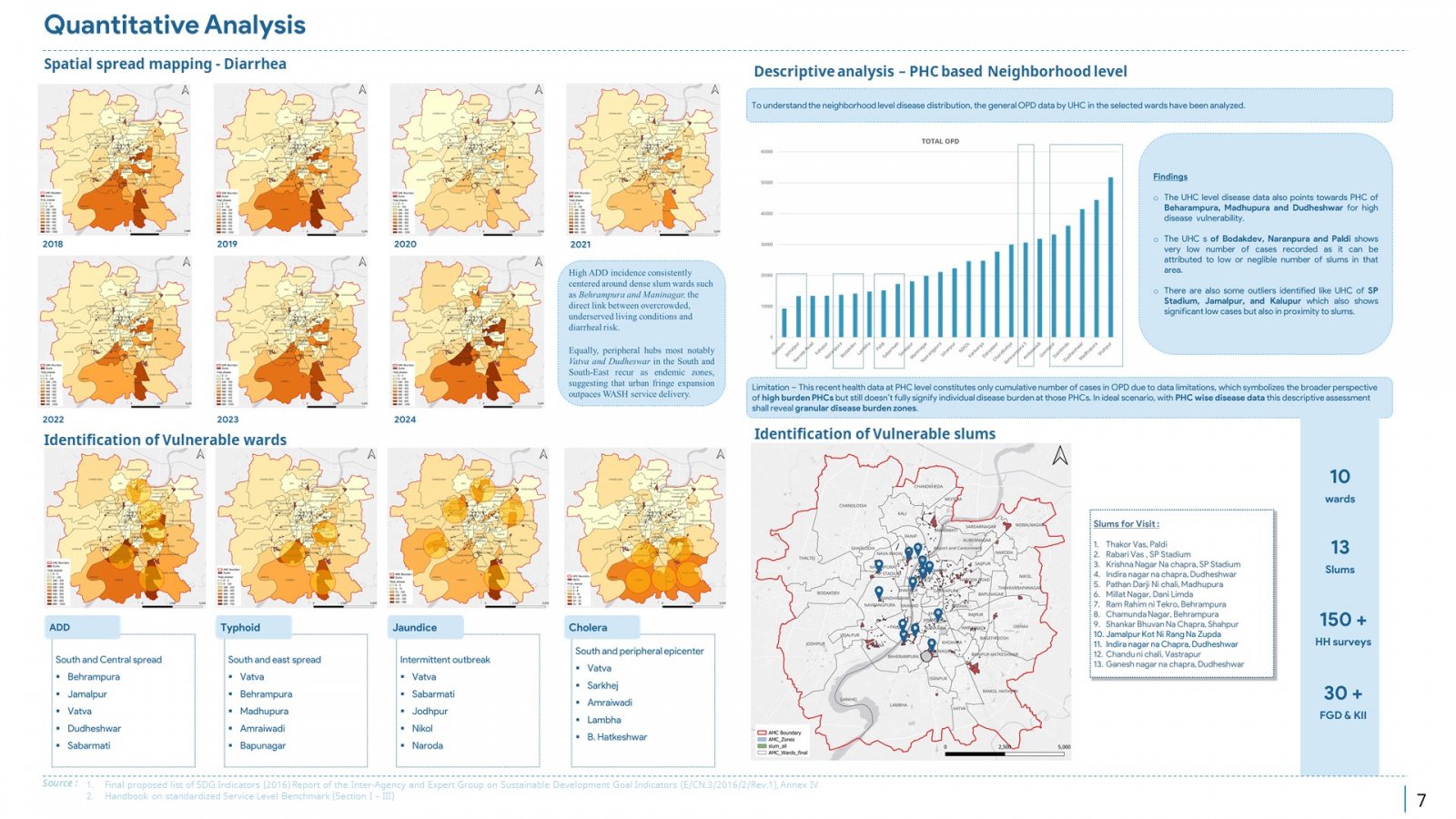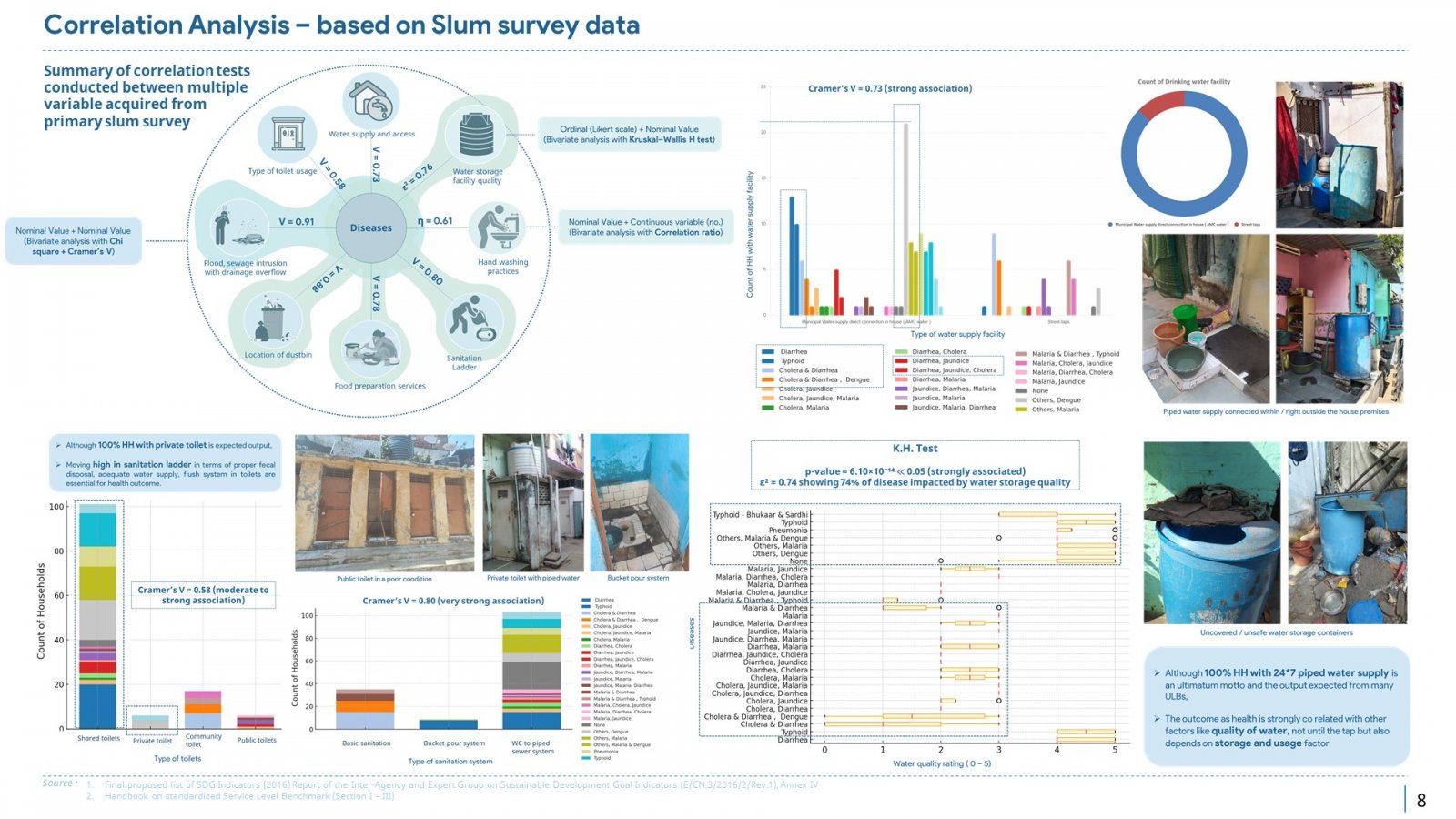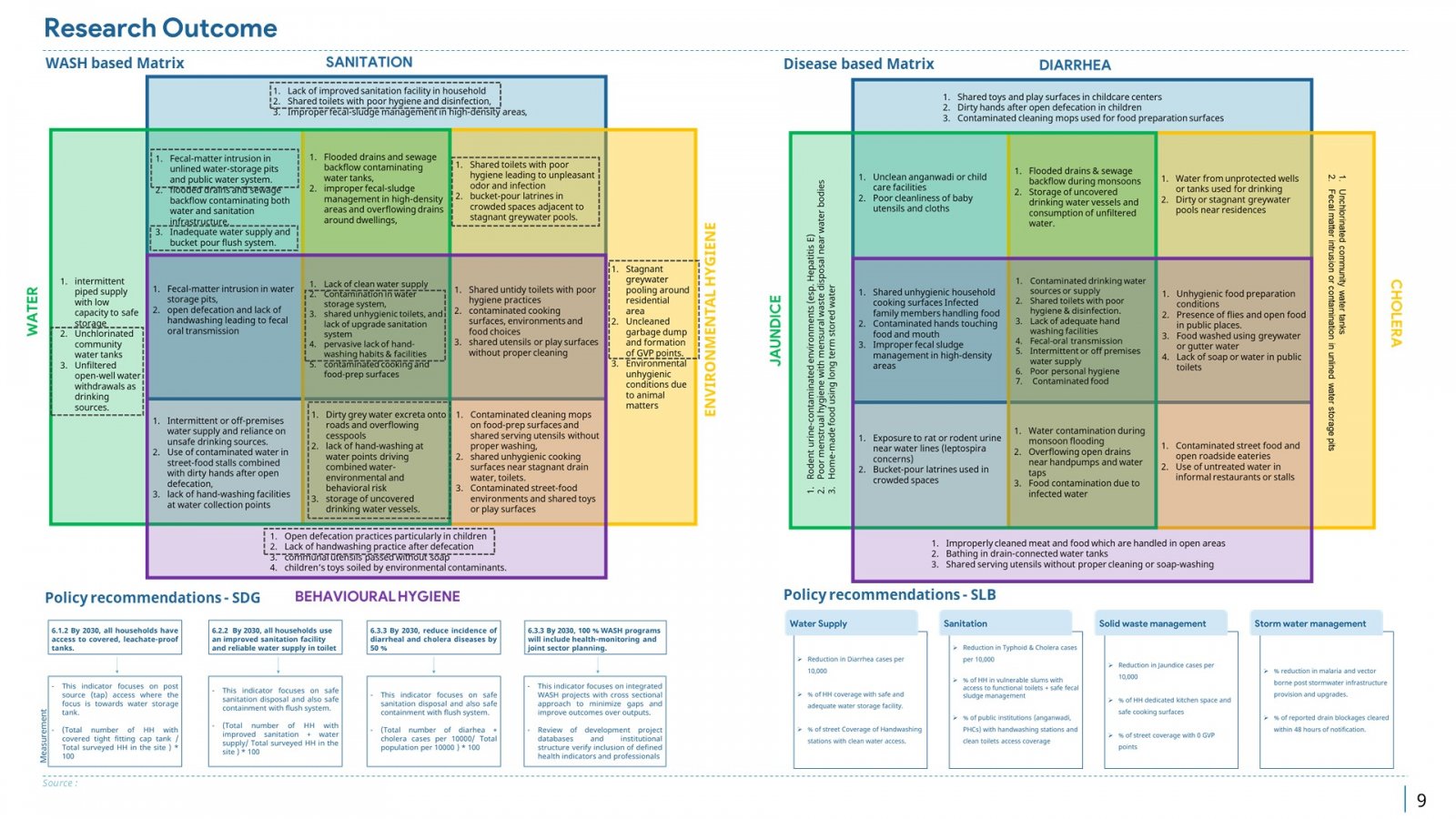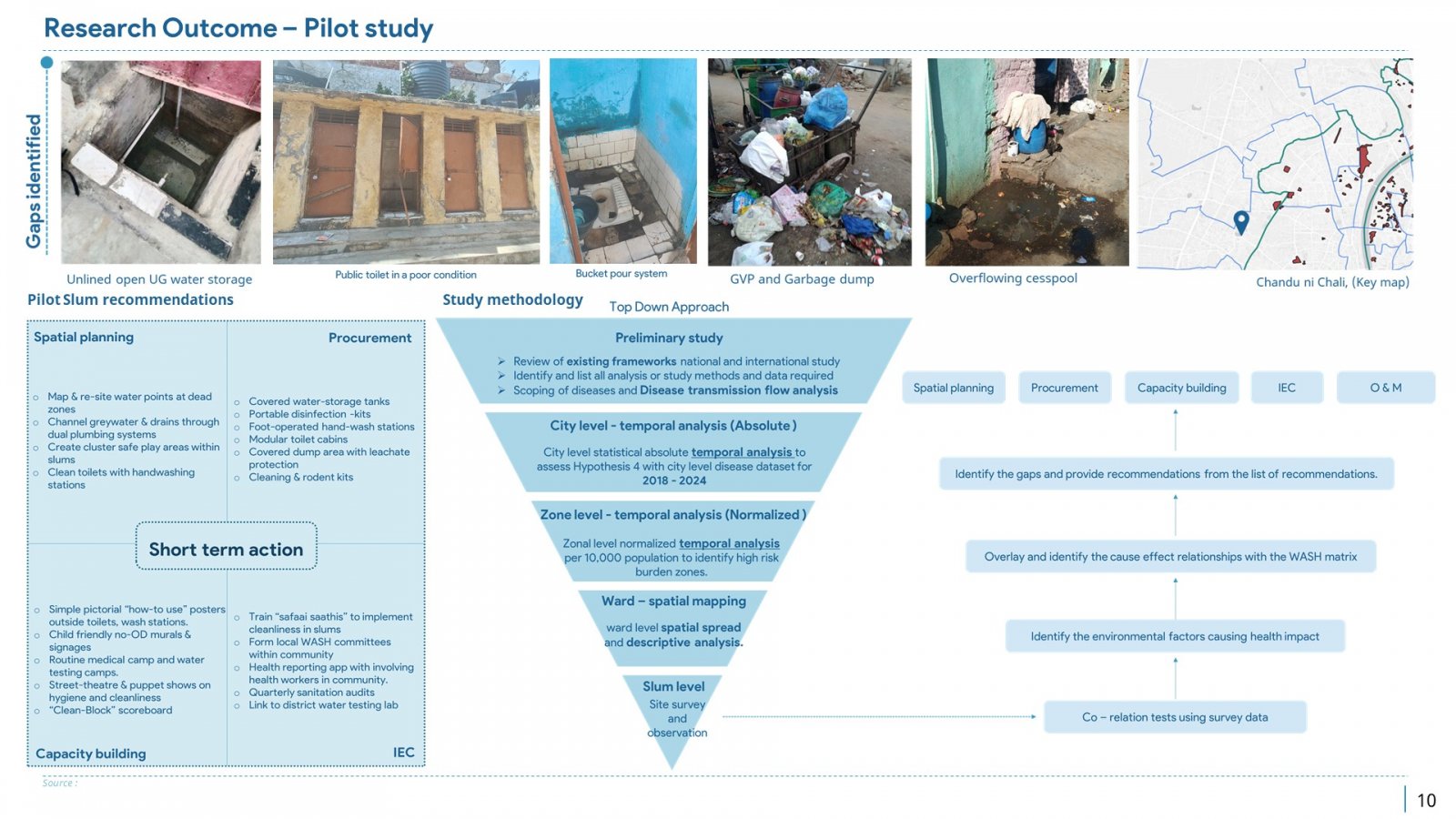Your browser is out-of-date!
For a richer surfing experience on our website, please update your browser. Update my browser now!
For a richer surfing experience on our website, please update your browser. Update my browser now!
This study supported by UNICEF with a focus to create a comprehensive framework for urban local bodies to evaluate WASH conditions in Ahmedabad’s vulnerable slums and measure their public health impacts. Integrating water access, sanitation infrastructure, and hygiene practices into urban planning, it guides evidence-based interventions to reduce waterborne diseases and promote equitable health outcomes. Grounded in flagship initiatives this holistic approach empowers policymakers to invest strategically in resilient, inclusive infrastructure and break the persistent cycle of disease and poverty. This study addresses this issue on hierarchy level, while also suggests recommendations aligning to the hierarchy.
